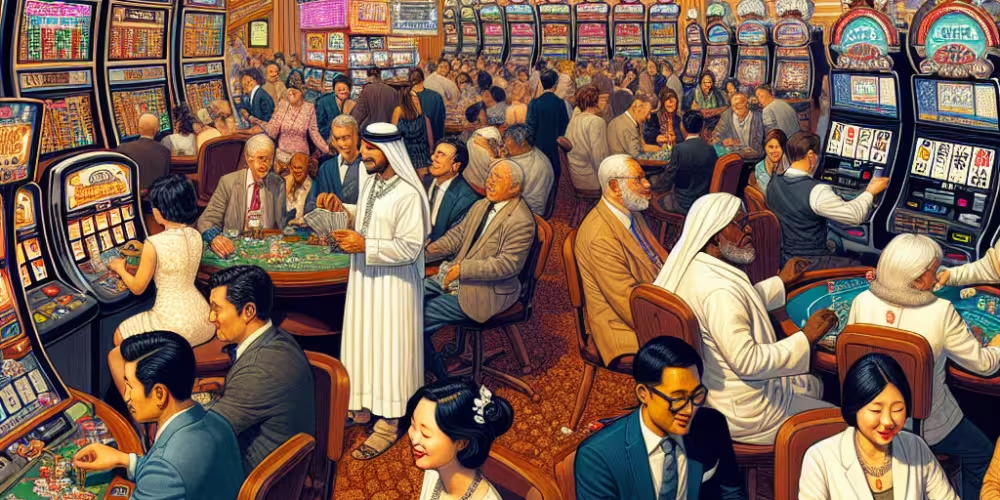Macau, known as the gambling capital of the world, has once again made headlines with its casino industry recording staggering revenue numbers for March 2023. After several years of declining profits due to stringent regulations and the global pandemic, the Special Administrative Region of China has reported a remarkable turnaround, signaling a robust recovery and a hopeful future for global gaming sectors.
March 2023 saw Macau’s gross gaming revenue surge to an unprecedented $3.4 billion, marking a remarkable 180% increase compared to the previous year. This boost is largely attributed to the easing of COVID-19 travel restrictions and a significant influx of tourists, primarily from mainland China, which remains Macau’s largest market.
The resurgence in Macau’s gaming sector is a critical development, considering the city’s economy heavily relies on its casinos, which contribute to over 60% of its GDP. The recent spike in revenue not only elevates local economic prospects but also signals a vital sign of recovery in international tourism and leisure activities.
Casino operators in Macau, including global giants like MGM Resorts, Wynn Resorts, and the local powerhouse SJM Holdings, have reported substantial gains. In response to the booming business, these companies are now planning to expand their operations. They are investing in comprehensive resort facilities, aiming not only to attract gamblers but also to cater to a wider audience seeking entertainment, shopping, and culinary experiences.
The government of Macao has also played a crucial role in this recovery. Recently, it revised several key regulations to strike a balance between economic growth and social responsibility. These include enhanced scrutiny on junket operators and a drive towards more diverse offerings beyond hardcore gambling. Authorities have also initiated campaigns to promote Macau as a safe and attractive tourist destination.
Moreover, in an unprecedented move, Macau’s Gaming Inspection and Coordination Bureau has introduced initiatives aimed at supporting responsible gambling. These include setting up help centers and introducing technology to monitor gambling behaviors aggressively. Such measures reassure both investors and tourists about Macau’s commitment to sustainable and responsible tourism.
This resurgence is a beacon of hope not only for Macau but also for other gambling hubs globally, which have faced similar challenges. Analysts are closely watching this revival as it could set trends and offer lessons in how other regions might also bounce back.
Industry experts suggest that the key takeaway from Macau’s rebound is the importance of diversification and adaptability. While gaming remains central, enhancing non-gaming elements can significantly attract a broader demographic, crucial for long-term sustainability.
As Macau continues to navigate its recovery, the global gaming and tourism industries are observing with keen interest. The region’s ability to adapt and thrive amidst adversity is setting a compelling blueprint for others to follow. The coming months will be critical, as they will indicate whether this recovery is merely a post-pandemic surge or a sustainable trajectory towards long-term prosperity.
In conclusion, Macau’s impressive March performance is not just a local success story but a global signal of the potential recovery and growth of the gaming industry worldwide. Stakeholders across the globe are watching and learning, as they too look to invigorate their regions and step into a post-pandemic world with renewed vigor and optimism.

Erik Agary is a seasoned writer at True Games Reviews, specializing in gaming, casino games, and interactive entertainment. With a passion for all things digital, Erik dives deep into the latest trends and developments in the gaming world, offering insightful reviews and detailed analysis. His expertise spans across multiple gaming platforms, ensuring comprehensive coverage that resonates with both novice and experienced gamers alike.


